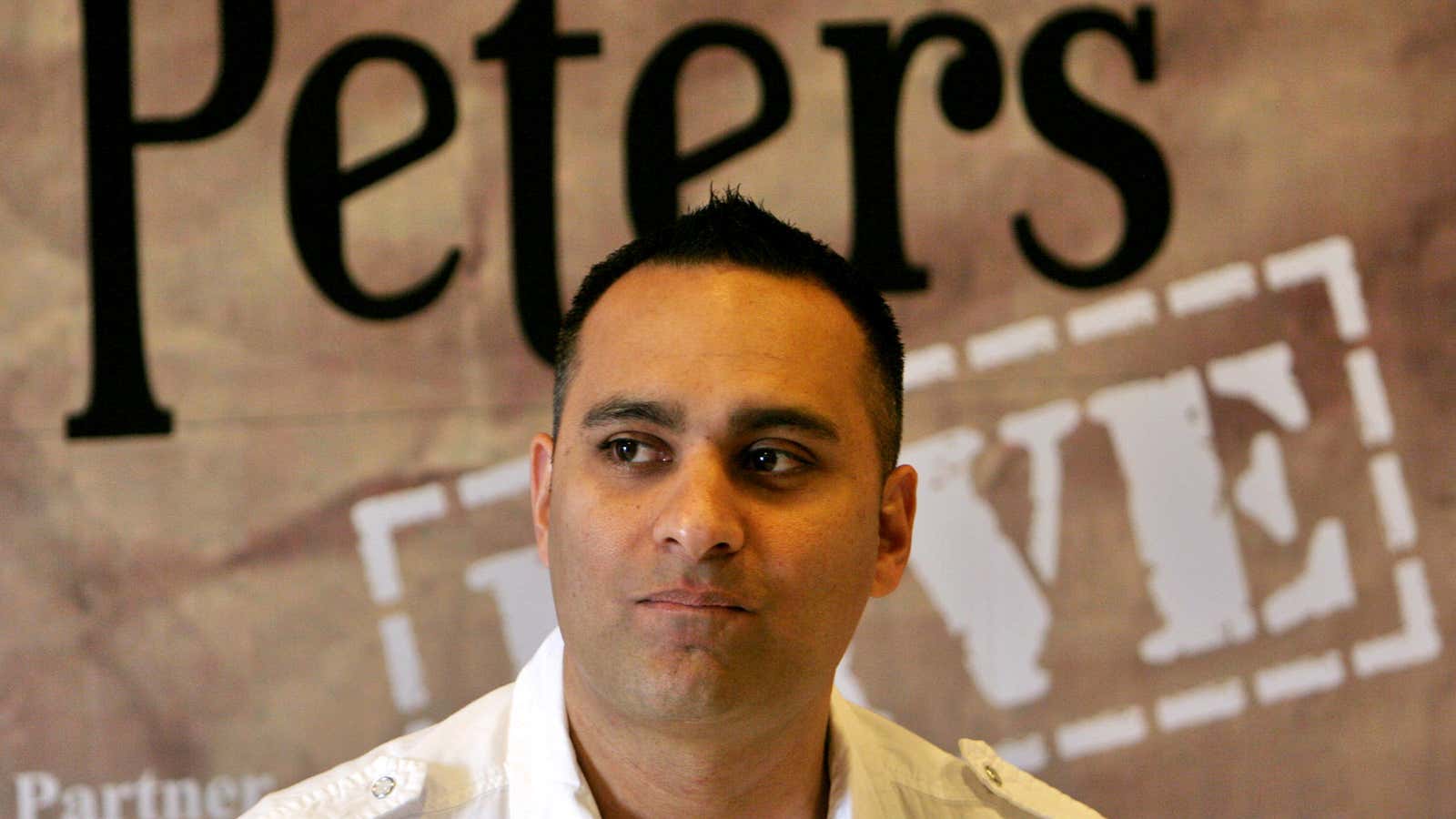After six months in Beijing, I’ve only seen brown people appear once on a TV or movie screen.
Around 30 minutes into Cold War, a big budget cop thriller released in October 2012, two South Asians (their nationality unclear) are found hiding at a Hong Kong dock site by a police squad.
One is shot in the face with a sniper rifle. The other is waterboarded for information. Both are never mentioned again in the film.
In China, India is marked more by its absence than its presence.
China and India are often talked about in the same breath in global discourse, but within China, outside of a few scant cultural signposts, the notion of India and Indian-ness is largely built on rumor and stereotype.
As an Indian in Beijing, I find that there are two extremes: a “fascination” with white skin, and deeply problematic prejudice against people of darker skin (toothpaste brand Darlie, for instance, is called ‘Black People Toothpaste’ in Chinese), there’s a curious absence of a middle ground.
Being brown here is in effect occupying a negative space, marked largely by indifference and apathy. For most people, there’s no frame of reference for how to understand Indians. Much of it, as a group of students from Peking University told me when I asked if they knew anyone who was romantically attached to a South Asian, was “unimaginable.”
In India, Chinese soft power is more significantly present than India’s in China. Chinese films, both mainstream and art-house, regularly cross the border. Martial arts is a popular distraction, and Mandarin is now taught at Central Board of Secondary Education (CBSE) schools.
But in Beijing, even the usual cornerstones of Indian soft power—Bollywood, yoga, tandoori chicken—are conspicuously absent.
It’s important to qualify here that these observations extend only to Beijing. Like India, there is no one China, and markers of cultural and racial outlooks vary enormously between provinces.
But there are two mediums that extend beyond these geographical spheres. There is China’s official line, parroted in newspapers and TV news media, of India as a “rival.” The media misses no chance to underscore India’s woeful infrastructure, often connecting it to the inefficiencies of working within a democracy. There are also simmering tensions over India’s stance on Tibet, and border disputes. History documentaries on CCTV paint Indians as “soldiers of the British,” lumping them together with other imperialist powers.
On the other end of the spectrum, there are the raucous voices of China’s netizens who express both nuance and extremism. For most perusers of social media on microblogging platforms like Sina Weibo or Facebook clone RenRen, “India” is a cobbled construction of certain images:
- The character Rajesh Koothrappali from the sitcom Big Bang Theory
- The comedian Russell Peters
- Two widespread viral images: one of an overcrowded Indian train, people filling compartment roofs and hanging off the sides. The other of dead bodies floating down the Ganges in Varanasi. Both frequently evoked with the descriptor: “disgusting”
- The films Slumdog Millionaire and 3 Idiots
- The smell of curry, often used as a derogatory epithet
The brown deficit
Chinese today associate fair skin with wealth and affluence—a correlation fortified by advertising and television. The market for fairness creams in the Asia-Pacific region is estimated to be over $13 billion (India comes a distant second, with a market estimated at US$432 million), and the quest for fairer skin is everywhere. The camera on my Chinese brand mobile phone even has a “skin tone enhancement” feature.
Characters of color, therefore, rarely appear on Chinese television, other than in occasional cameos designed to evoke fear or failure.
However, a new Hong Kong-based comedy TV series called “冲呀!瘦薪兵团” (No Good Either Way), features a prominent Indian character, Interpal Singh.
Played by Gill Mohindepaul Singh, who is also the first Indian actor to be signed by production house Television Broadcasts Limited (TVB), Interpal represents a significant sign of change even if his backstory is dismayingly stereotypical. Rough translation from the series’ official character bio:
“[Interpal’s] is smart, active and he values relationships very much. He struggled very hard to make money…but always failed. His parents tried to force him to return to India to work and get married. But at the end, he manages to open a small business in Hong Kong.”
But a single TV series isn’t going to make a significant dent to widespread beliefs. India needs to be more present in China if it wants to be understood better. There’s an enormous shared legacy, from history to religion to cuisine, to draw on. It’s an opportunity for cultural dialogue, as the current generation in both countries seems to share intriguing similarities.
